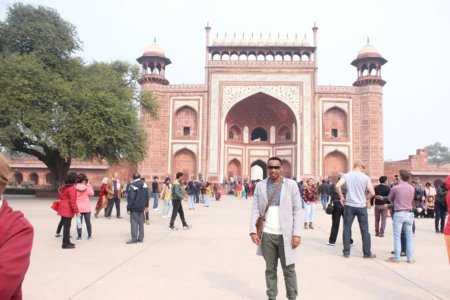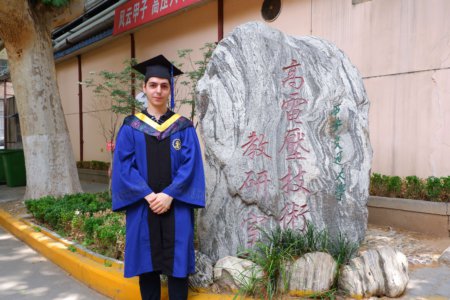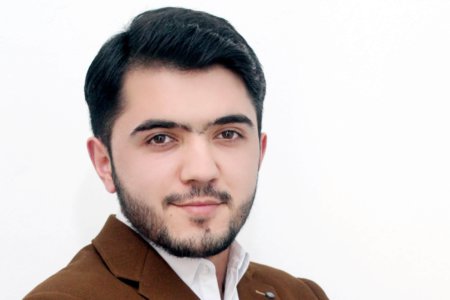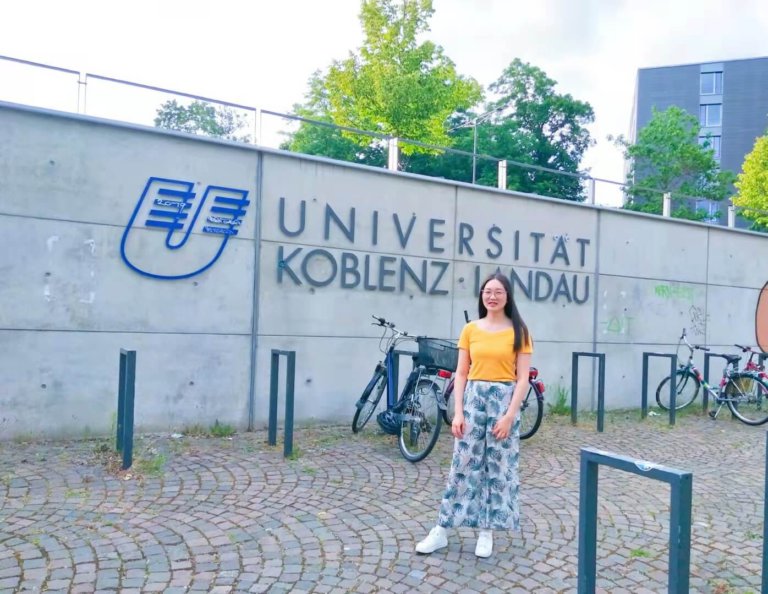
Bixiu Liu is a double master’s degree student who was born on a remote farm in Sichuan, China in 1995. Her story sheds a light on how a village girl from the mountain region worked hard to pursue an education abroad.
Growing up in a place that was isolated, poor, and not well-developed, Liu’s parents had her pick apples on their farm to make ends meet.
Despite this, Liu’s childhood was full of love and happiness.
With China’s nine-year compulsory education system policy, her parents didn’t have to stress about financing her primary education. After her high school studies, Liu enrolled at Leshan Normal University to get her bachelor’s in environmental science.
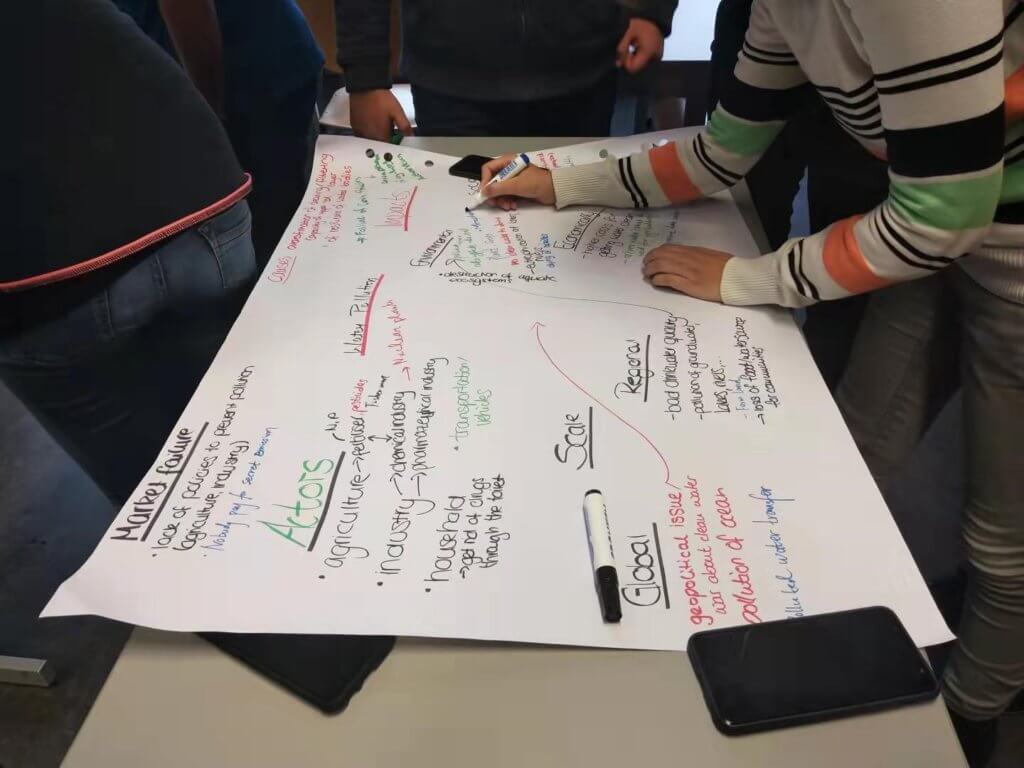
Brain storming in class, Li finds the multicultural environment inspiring. Source: Bixiu Li
Then, she went on to study at Fujian Agriculture and Forest University (FAFU) under the guidance of Professor Christopher Rensing at the Institute of Environmental Microbiology. There, she was introduced to the double master’s degree programme — we caught up with her to learn more this, culture shocks and what she likes most about Germany:
Tell us more about the double master’s degree programme.
The double master’s degree programme is an exchange between the Fujian province in China and Rheinland-Pfalz and Saarland in Germany. The one I’m part of is under FAFU and the University Koblenz Landau (Uni KO-LD).
Under this programme, I’m assigned to a supervisor at both my unis to work on a topic for their thesis. I also have to complete it in English, defend it at FAFU and receive a complete degree from both institutions.
Students from Germany can also study in China but this hasn’t taken place yet because of the COVID-19 travel restrictions. This programme and some of the undergraduate ones act as a bridge between the two countries and their joint education training.
What about the process to apply for it?
In 2019, my supervisor (Professor Rensing) came across a project with an institution in his home country of Germany. With his encouragement, I got to know more about it and finally applied for the double master’s degree programme.
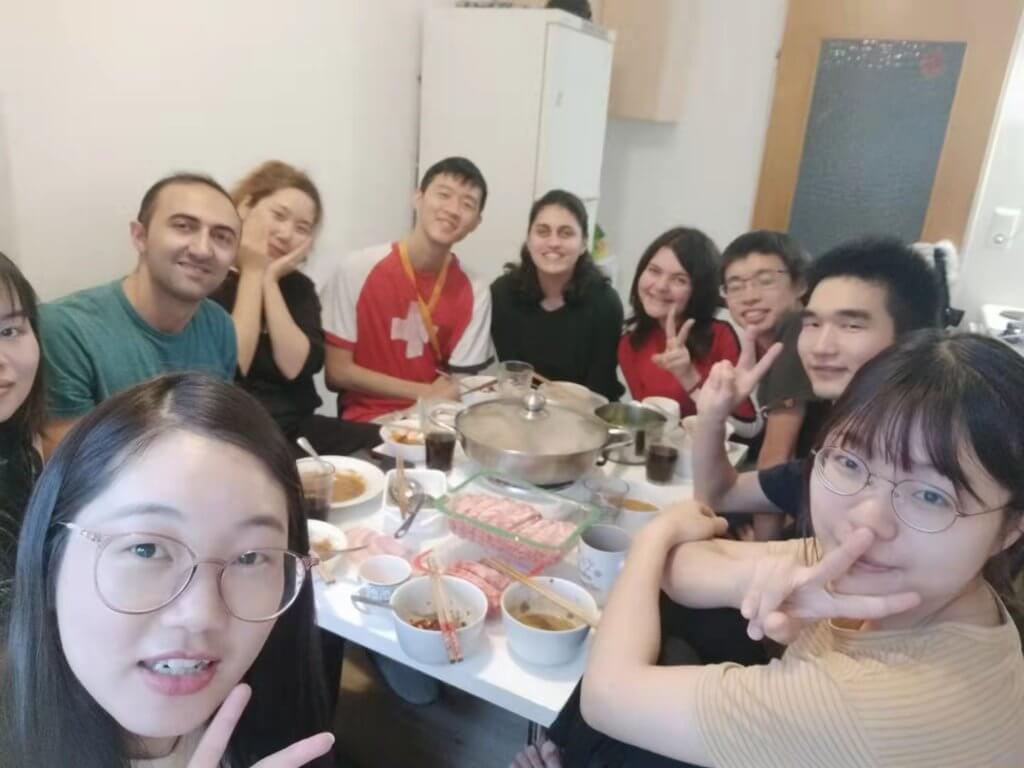
“I had to adapt to a completely different custom, timezone, and take care of my own food and accommodation. Along with paying attention to my mental health, I’m slowly and gradually finding my own way,” she says. Source: Bixiu Li
I arrived in Germany at the end of 2019 at the Uni KO-LD in southwestern Germany. My campus (Landau) is famous for being a wine-growing region only 30 kilometres away from France. It’s also a friendly ecological environment.
What do you think made your application stand out?
FAFU selects students for an interview with the director of Uni KO-LD through things like academic research abilities, programme interests, language skills and being able to adapt to cross-cultural studies.
One of the most important things would be English language proficiency (both oral and written). As I have more than 10 years of study experience in English, it gave me the knowledge base I needed.
Another important thing is academic competency. This is more about your ability to study by planning your own course schedule, adapting to the courses and working on group assignments.
Finally, being adaptable. The Chinese and Germans have very different ways of thinking and dealing with things. Not to mention, the living habits are polar opposites so having an open mind and a tolerant attitude is necessary.
What’s it like, finally studying abroad at Uni KO-LD?
The diverse cultural background creates an extremely inclusive international atmosphere which is a wonderful experience. I get to feel the synergy of ideas from people with different backgrounds and cultures.
In an international context, being able to participate in discussions with a broader perspective allows me to get a more three-dimensional analysis. At the same time, studying here is very individual.
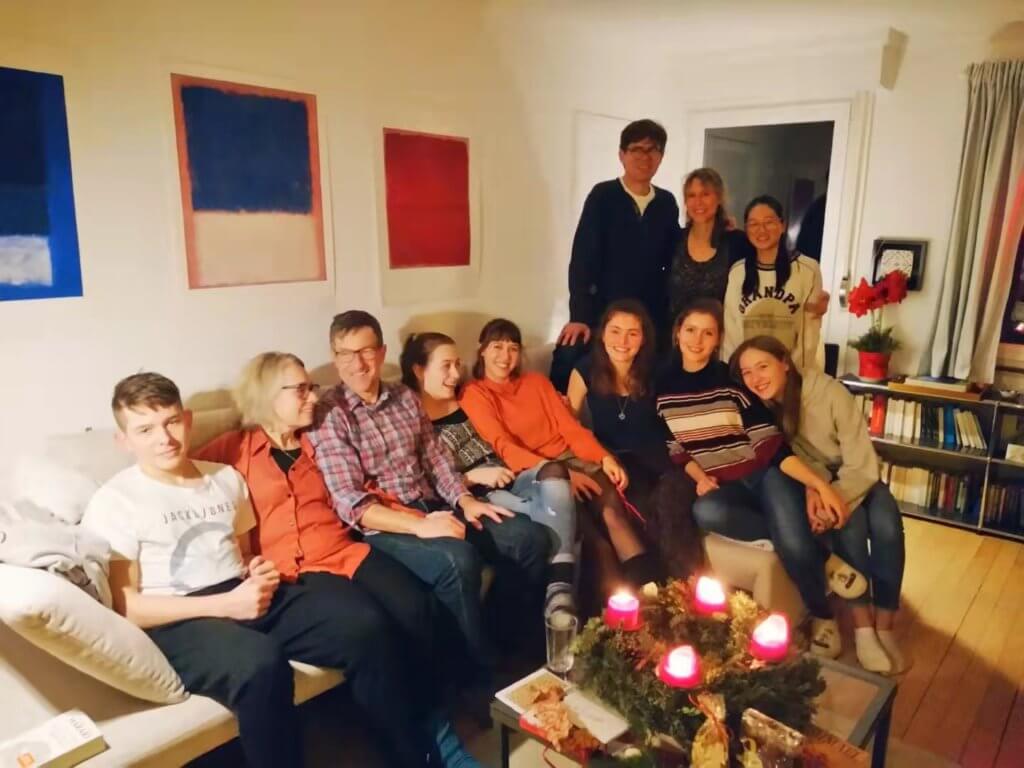
Christmas was spent with her supervisor’s family and their friends. Source: Bixiu Li
This is because, even though the compulsory modules are the same for everyone, the topics and content differ between each student or study group. There’s also the opportunity for corporate practice with internships at research institutions.
What about culture shocks? Have you experienced any?
In my double master’s degree classes where intense discussions take place, there are evident culture clashes. This comes from students who all have completely different views and are usually reflected in class discussions.
However, I find the communication very creative which gives me a more comprehensive perspective. There are occasional conflicts but at the end of the day, we’re all good friends.
What about independence abroad?
Because you have to make your own arrangements, you’re then responsible for all the big and small things. This is a great exercise of your independence and self-care skills.
I had to adapt to a completely different custom, timezone, and take care of my own food and accommodation. Along with paying attention to my mental health, I’m slowly and gradually finding my own way.
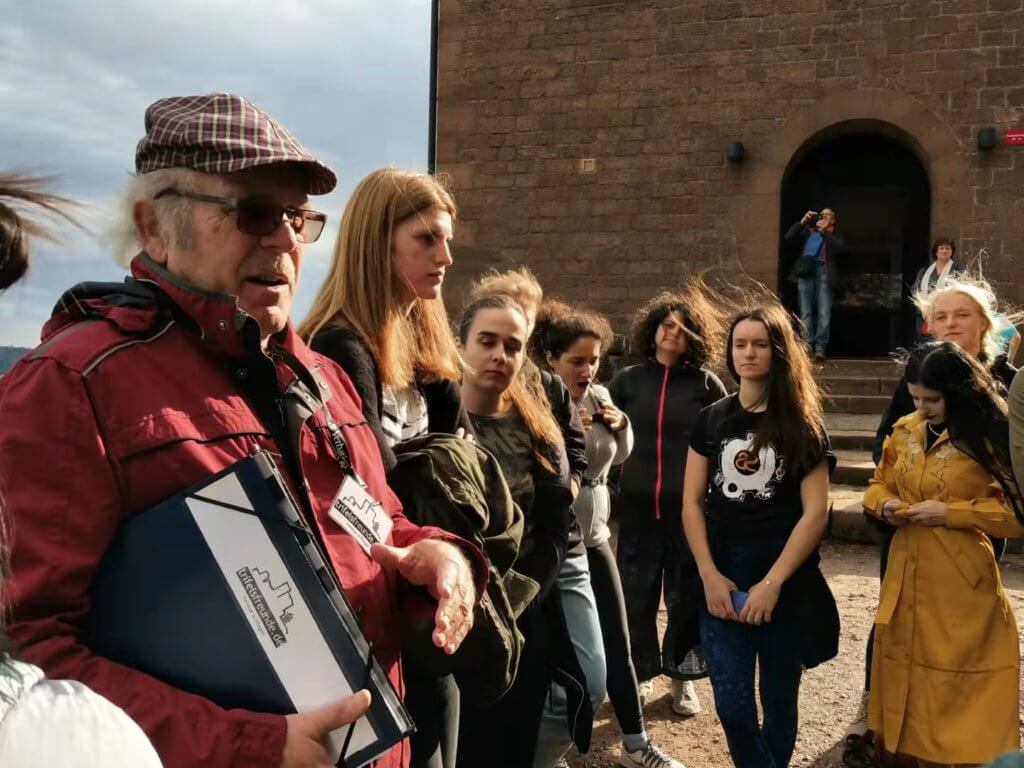
The International Welcome Centre organised a tour of the castle left over from World War II. Source: Bixiu Li
Do you ever feel lonely? What do you do to fix it?
Solitude and freedom go hand in hand. Unlike China, where there is a lot of human emotion and a sense of mutual bonding, Germany’s cultural vibes are quite private. This leads introverts to feel lonely.
Also, because of its location (close to the northern hemisphere), there are shorter days during winter. This means less vitamin D in the body which could, in turn, lead to depression. My solution is to take supplements, make friends and exercise more.
Has it been an enjoyable journey so far?
Definitely, I’ve learnt a lot and improved on myself during my studies in Germany. Most importantly, I found my path in environmental protection for my future career with a focus on sustainability.
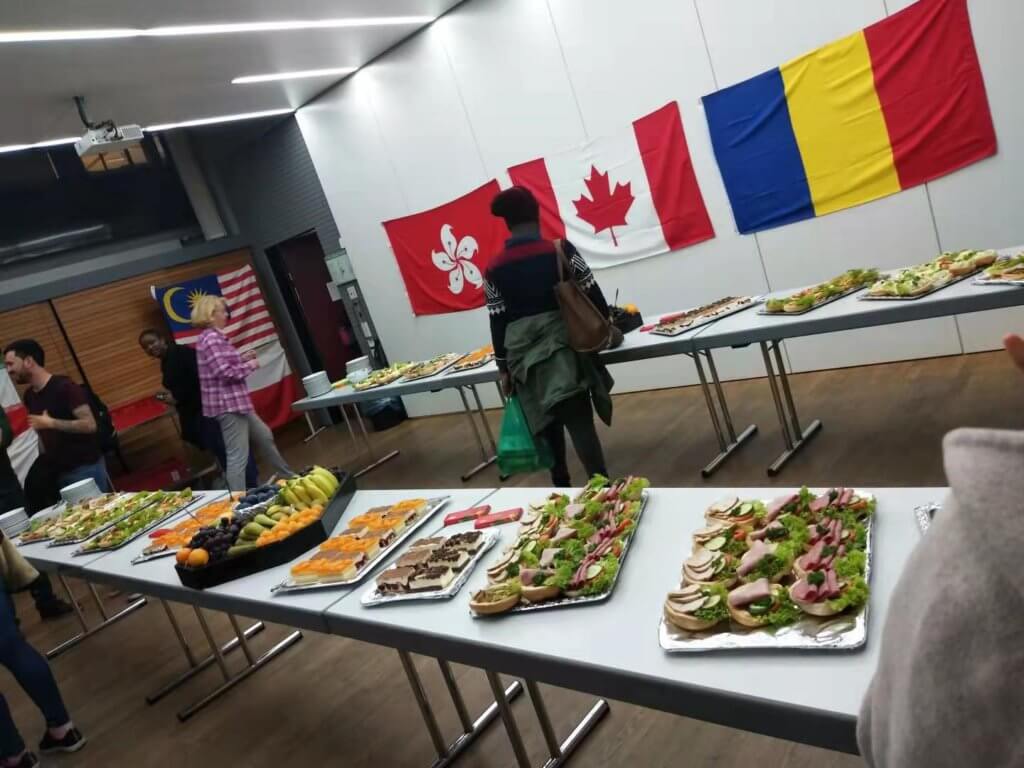
A brunch event organised by the uni’s welcome committee. Source: Bixiu Li
As I near the end of my educational journey, I’m confident I’ll progress in this field. For all the international students, I understand the confusing feeling of entering the real world for the first time.
But, if you are strong enough to overcome it, you can rest assured you’ll grow to be the best version of yourself. Beyond just me, this opportunity is also a great chance for students to explore the world.
This double master’s degree programme is something I would strongly recommend to students who are interested in environmental science. Keep fighting as you will get what you want in the end with hard work, strength, courage and faith.








